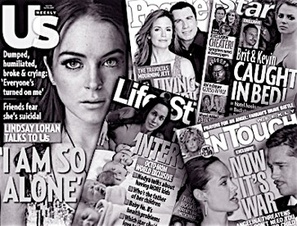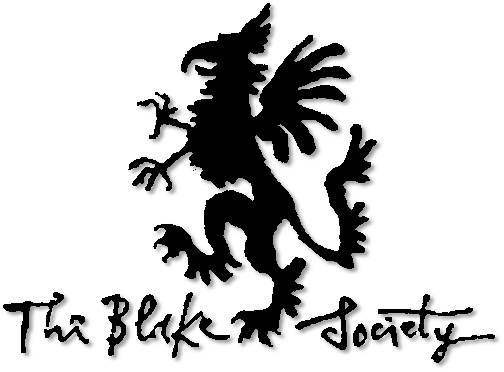Can celebrity culture be exploited for 'good'?

I don't read the Daily Mail. This not a moral or, even deliberate, choice. Between Facebook, Pinterest, the occassional Buzzfeed, hours spent on the 'Discover' page on Spotify and catching up (at snail-pace) with all the happening television, there is just not enough time to fit the Mail into my internet habits. However, before writing this blog post, I thought I would give it a cursory glance given the nature of this post, for any 'in' celebrity gossip. I was not disappointed.
The top celeb gossip included:
Did Kim and Kanye FAKE getting engaged on TV?
Skinny Allen! Lily shows off her svelte physique in sexy red shirt and pencil skirt...
Jenson Button and girlfriend Jessica Michibata confirm engagement as she sports a VERY big rock on her wedding finger.
I had not realised that the world was still on about Kim and Kanye's engagement, nor that Lilly Allen had ever really put on weight and I had never heard of Jessica Michibata before. But that is besides the point. The point I'm trying to make is this - we have too many celebrities, and too much news on them. The Mail thrives because it has an audience - us. It's not really clear why we care so much about the lives of celebrities, and yet, it is undeniable that we do care.
Can this power of celebrity to capture our attention be tapped into as a force for good?
Did Kim and Kanye FAKE getting engaged on TV?
Skinny Allen! Lily shows off her svelte physique in sexy red shirt and pencil skirt...
Jenson Button and girlfriend Jessica Michibata confirm engagement as she sports a VERY big rock on her wedding finger.
I had not realised that the world was still on about Kim and Kanye's engagement, nor that Lilly Allen had ever really put on weight and I had never heard of Jessica Michibata before. But that is besides the point. The point I'm trying to make is this - we have too many celebrities, and too much news on them. The Mail thrives because it has an audience - us. It's not really clear why we care so much about the lives of celebrities, and yet, it is undeniable that we do care.
Can this power of celebrity to capture our attention be tapped into as a force for good?

Jack Gleeson, who plays the notorious Prince Joffrey Baratheon in the television series Game of Thrones talked about some of these issues surrounding celebrity culture in the Oxford Union in November 2013. It is clear that he is troubled by celebrity culture, and does not enjoy the limelight quite as much as his television persona.
"I had signed an invisible contract that required me to enter into a strange echelon of society".
The Irish actor went on to admit that he wanted to retreat from his new-found fame partly because of his detest for “the superficial elevation and commodification of it all”, and because of a "grotesque self-involvement" that it brought out of him.
He identifies three rationales for the reverence celebrities are shown in our society - economic, psychological and sociological. This is a simplification and a summary, to avoid repeating Gleeson's speech. The economic argument is that the rise of celebrity as a commodity (entertainment as a product) reflects the West's transformation from a producing society to a consuming society. Psychologically, the argument goes that as a society we seek role models as a matter of an “evolutionary quirk" and sociologically, it appears that these role models tend to be those who have a charisma that Weber's hero-prophets possess. In their publicised identity, then, celebrities possess a certain quasi-charisma in the form of a 'willing domination' over their audience, us. Do watch Gleeson's speech for an elaboration of these arguments.
He identifies three rationales for the reverence celebrities are shown in our society - economic, psychological and sociological. This is a simplification and a summary, to avoid repeating Gleeson's speech. The economic argument is that the rise of celebrity as a commodity (entertainment as a product) reflects the West's transformation from a producing society to a consuming society. Psychologically, the argument goes that as a society we seek role models as a matter of an “evolutionary quirk" and sociologically, it appears that these role models tend to be those who have a charisma that Weber's hero-prophets possess. In their publicised identity, then, celebrities possess a certain quasi-charisma in the form of a 'willing domination' over their audience, us. Do watch Gleeson's speech for an elaboration of these arguments.
I am interested, however, in the point of caution that Gleeson raises. He is troubled, clearly, by the fact that celebrities possess a power without responsibility. They act as role-models for society but owe no responsibility to embody any virtues. This unaccountability forms one part of his concern as to where celebrity culture will take us.
It could be argued however that the very fact that celebrities are being watched may serve to police the activities of celebrities. The fear of being caught in the act may stop them acting particularly rashly. Indeed, it may give them incentive to act 'virtuously', to gain positive response from their audience.
Alain de Botton makes a version of this argument here: http://www.theguardian.com/commentisfree/2014/jan/31/dont-despise-celebrity-culture-angelina-jolie
It could be argued however that the very fact that celebrities are being watched may serve to police the activities of celebrities. The fear of being caught in the act may stop them acting particularly rashly. Indeed, it may give them incentive to act 'virtuously', to gain positive response from their audience.
Alain de Botton makes a version of this argument here: http://www.theguardian.com/commentisfree/2014/jan/31/dont-despise-celebrity-culture-angelina-jolie

Alain claims that Angelina Jolie's charitable deeds makes Africa 'sexy'. Regardless of the means, the outcome is that you and I are "induced" to care about Africa because Angelina Jolie is out there being a do-gooder. And that's a good thing, right?
Nah. At least, I think nah. This view actually diminishes the position of both parties in this social exchange. People make choices based on several value judgements personal to them. That Africa is now 'sexy' because Angelina Jolie has adopted it as her cause does not mean that you, or I, will follow their lead. To suggest otherwise is to commit the same crime that is allegedly committed against celebrities. It is to dehumanise the audience and treat it as a herd or, worse a mob. Just as the celebrity is dehumanised in being treated as a commodity, the audience become a faceless cohort. But even Alain's is right, it does not follow that all activities that followon from Angelina Jolie's actions will end up being beneficial to the cause. This can be seen in the concerns surrounding 'voluntourism', particularly topical at the moment. This is the claim that volunteer tourism can add little to no value to the host country receiving volunteers, and may even be detrimental in some cases. As Ossob Mohamud puts it, there are better ways to combat poverty than using the developing world as a playground. (more on this here: http://www.theguardian.com/world/2013/feb/13/beware-voluntourists-doing-good)
Alain de Botton does not stop there. He extrapolates his reflections on Angelina Jolie in this manner. Celebrities are role models in society. These 'magnetic' celebrities, Jolie included, could then lend their charismatic personalities to several other important causes such as reading, being kind, forgiving and working towards social justice. If only these things could be sexed up a bit, we'd all be tripping over each other to act to pursue these goals. He goes on to make the claim that imitation founded on admiration is integral to a good life. This cannot be right. There is nothing intrinsically valuable in imitating good. Imitation suggests mindlessly following a trend, and anything that is mindless cannot be integral to a good life. And what happens when trends change and, say, social justice falls out of fashion?
De Botton’s argument makes the same error - at the audience level - that Gleeson claims is occurring at the celebrity level. We are dehumanising ourselves into a gawking audience that celebrities have and end up treating ourselves as a crowd who would unthinkingly follow the lead of a celebrity because a social practice is ‘cool’ or 'sexy'. This treats us as being unintelligent objects who participate in the process of celebrity to be led by those we revere - it commodifies us too in the end, and there cannot be any normative value to such a position.
Perhaps it's best if we all just made up our own minds rather than imitate Jolie, Allen or Kim?
Alain de Botton does not stop there. He extrapolates his reflections on Angelina Jolie in this manner. Celebrities are role models in society. These 'magnetic' celebrities, Jolie included, could then lend their charismatic personalities to several other important causes such as reading, being kind, forgiving and working towards social justice. If only these things could be sexed up a bit, we'd all be tripping over each other to act to pursue these goals. He goes on to make the claim that imitation founded on admiration is integral to a good life. This cannot be right. There is nothing intrinsically valuable in imitating good. Imitation suggests mindlessly following a trend, and anything that is mindless cannot be integral to a good life. And what happens when trends change and, say, social justice falls out of fashion?
De Botton’s argument makes the same error - at the audience level - that Gleeson claims is occurring at the celebrity level. We are dehumanising ourselves into a gawking audience that celebrities have and end up treating ourselves as a crowd who would unthinkingly follow the lead of a celebrity because a social practice is ‘cool’ or 'sexy'. This treats us as being unintelligent objects who participate in the process of celebrity to be led by those we revere - it commodifies us too in the end, and there cannot be any normative value to such a position.
Perhaps it's best if we all just made up our own minds rather than imitate Jolie, Allen or Kim?


